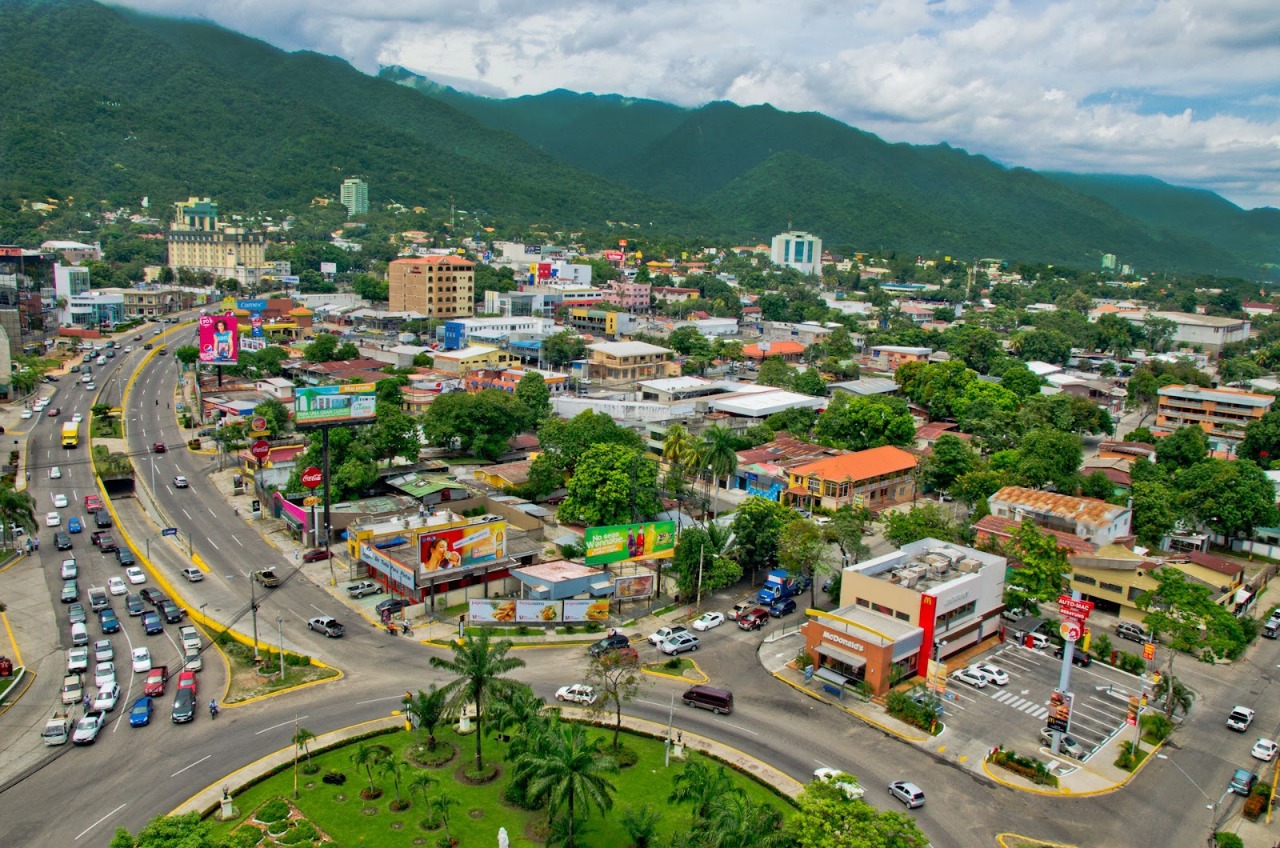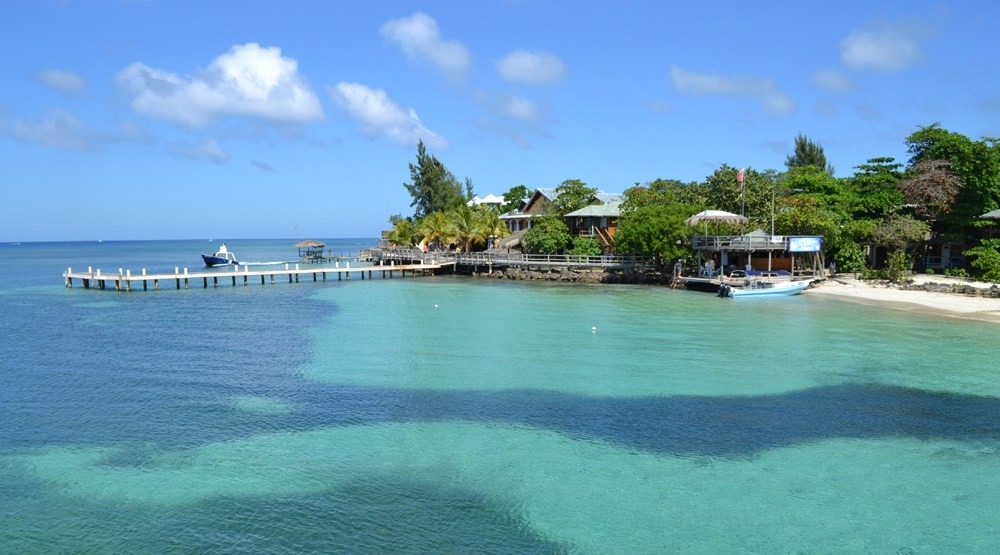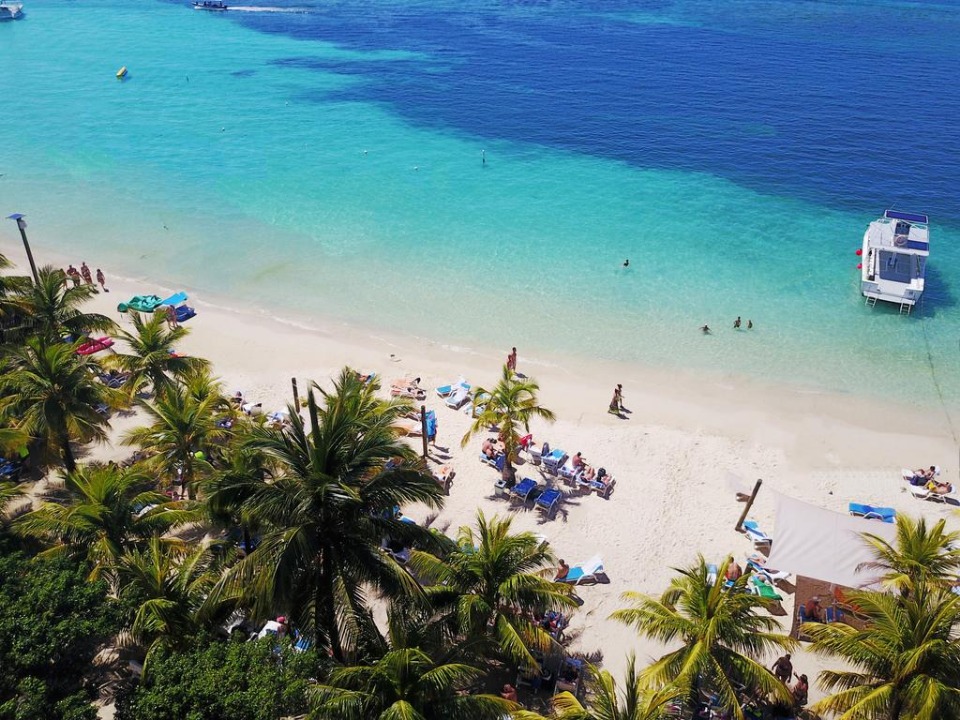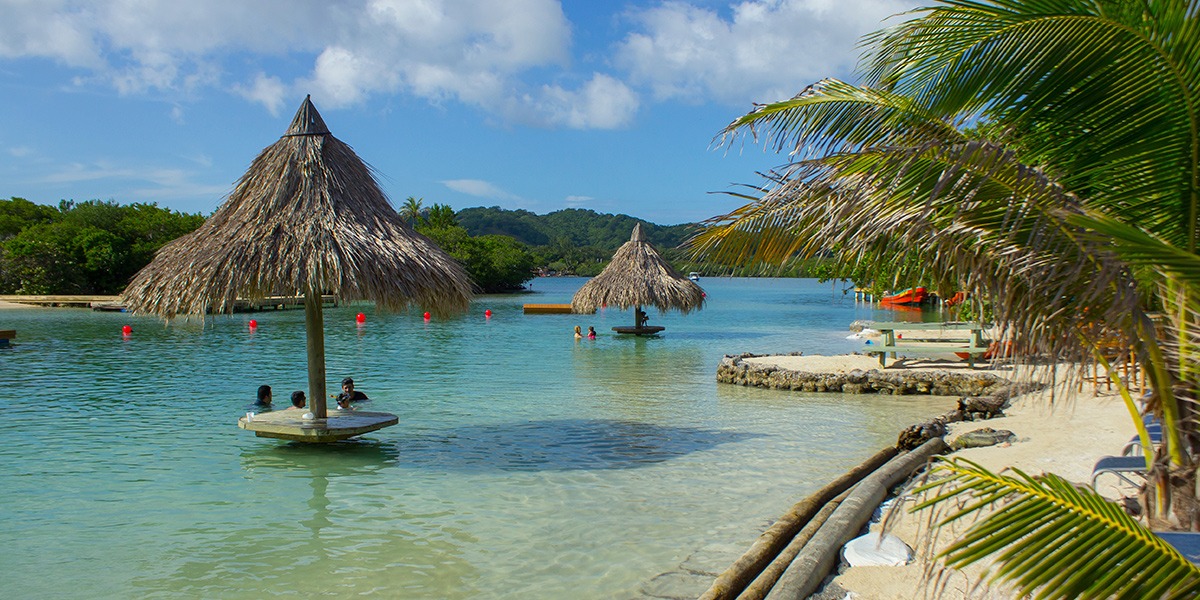Pictures of: Honduras
Location map
Airports
Hotels and other Accommodation
Golf Courses
What to visit
Consulates & Embassies
World Nomads
The Travel Insurance with the largest coverage

The Travel Insurance with the largest coverage

Honduras
Honduras, officially the Republic of Honduras, is a Central American country, bordered on the north by the Gulf of Honduras, to the north and east by the Caribbean Sea (where it has a maritime border with the Colombian territory of San Andrés and Providencia), to the south Nicaragua, Gulf of Fonseca and El Salvador and to the west by Guatemala. Its capital is Tegucigalpa.
The country has housed several important indigenous cultures, most notably the Mayans. Christopher Columbus was the first European to visit the Bay Islands, off the coast of the country, landing near the present-day city of Trujillo. Much of the country was conquered and colonized by Spain in the sixteenth century, which introduced its now predominant language and many of its customs. It was organized as a province of the Kingdom of Guatemala and had three capitals: Trujillo, Comayagua and, from 1880, Tegucigalpa, which remains until today. It became independent on September 15, 1821 and was a republic since the end of Spanish rule.
The territory of Honduras is very rugged, forming by mountains, plateaus, deep valleys and extensive and fertile plains, crossed by navigable rivers. All this contributes to its rich biodiversity. It is estimated that there are about 8,000 species of plants, 250 reptiles and amphibians, more than 70,015 species of birds and 110 species of mammals, distributed in different ecological regions in Honduras.
The country has housed several important indigenous cultures, most notably the Mayans. Christopher Columbus was the first European to visit the Bay Islands, off the coast of the country, landing near the present-day city of Trujillo. Much of the country was conquered and colonized by Spain in the sixteenth century, which introduced its now predominant language and many of its customs. It was organized as a province of the Kingdom of Guatemala and had three capitals: Trujillo, Comayagua and, from 1880, Tegucigalpa, which remains until today. It became independent on September 15, 1821 and was a republic since the end of Spanish rule.
The territory of Honduras is very rugged, forming by mountains, plateaus, deep valleys and extensive and fertile plains, crossed by navigable rivers. All this contributes to its rich biodiversity. It is estimated that there are about 8,000 species of plants, 250 reptiles and amphibians, more than 70,015 species of birds and 110 species of mammals, distributed in different ecological regions in Honduras.
Official language
Spanish
Currency
Lempira
Documentation
To enter Honduras you must have the following documents and conditions:
1. Valid national passport or internationally recognized valid travel document, not less than six months.
2. Tourist entrance visa (except for European Community countries and others).
3. Valid return travel ticket and sufficient funds during your stay.
Taking into account the various conditions necessary for entry into Honduras, it is suggested that you contact the Embassy or Consulate of Honduras in the country of residence of the visitor to verify these requirements before starting your trip.
1. Valid national passport or internationally recognized valid travel document, not less than six months.
2. Tourist entrance visa (except for European Community countries and others).
3. Valid return travel ticket and sufficient funds during your stay.
Taking into account the various conditions necessary for entry into Honduras, it is suggested that you contact the Embassy or Consulate of Honduras in the country of residence of the visitor to verify these requirements before starting your trip.
Tourism
Honduras has three areas to be referred to in relation to its beaches: two in the Caribbean and one in the Pacific Ocean. To start talking about this beautiful country, we must point out that its most interesting beaches are those of the Bay Islands, in the Caribbean Sea, which occupy the north coast of the country. In the south, there is the Gulf of Fonseca, a natural outlet to the Pacific.
Honduras was a point of convergence between the cultural area known as Mesoamerica, so at this meeting point there was a hybrid that makes the pre-Columbian archeology of the country interesting and complex.
Of course, it is the Mayan sites and especially the Archaeological Park of Copán, declared Patrimony of the Humanity by UNESCO in 1980.
For more than three hundred years of Hispanic colonial history in Honduras, they have left their mark on numerous religious, civil and military buildings.
There are a hundred churches with rich sculptures and paintings that speak for themselves of the important mining operation that lived the ancient Province of Honduras.
Honduras was a point of convergence between the cultural area known as Mesoamerica, so at this meeting point there was a hybrid that makes the pre-Columbian archeology of the country interesting and complex.
Of course, it is the Mayan sites and especially the Archaeological Park of Copán, declared Patrimony of the Humanity by UNESCO in 1980.
For more than three hundred years of Hispanic colonial history in Honduras, they have left their mark on numerous religious, civil and military buildings.
There are a hundred churches with rich sculptures and paintings that speak for themselves of the important mining operation that lived the ancient Province of Honduras.
Gastronomy
The Honduran gastronomy is very varied, since it contains pre-Columbian, Spanish, Creole and, to a certain extent, African elements, as is typical of the entire Atlantic coast of Central America.
Traditional Honduran cuisine is heavily dominated by shellfish and corn, which is an indigenous culture that forms part of the food base of the pre-Hispanic peoples of Mesoamerica who inhabited the region. The typical food of Honduras is based on meat, poultry and fish, tortillas, beans, rice, dairy products such as regional cheeses and butters, vegetables or fruits. Coffee as an aromatic beverage is not lacking throughout the national territory to accompany breakfast, dinner or any time of day.
Traditional Honduran cuisine is heavily dominated by shellfish and corn, which is an indigenous culture that forms part of the food base of the pre-Hispanic peoples of Mesoamerica who inhabited the region. The typical food of Honduras is based on meat, poultry and fish, tortillas, beans, rice, dairy products such as regional cheeses and butters, vegetables or fruits. Coffee as an aromatic beverage is not lacking throughout the national territory to accompany breakfast, dinner or any time of day.
Climate
Honduras is a Caribbean country, which is why it has a privileged climate, warm and tropical. It is an area that only has two seasons, the dry and the wet and the temperature varies greatly from one season to another. May to July is the rainy season, while October to April is the dry season.
The average temperature in Honduras depends on where you are. Further inland, the temperature is about 20 degrees Celsius on average, while in the Pacific coast is about 27 degrees. In the Caribbean, the temperature on average is around 29 degrees during the day.
The average temperature in Honduras depends on where you are. Further inland, the temperature is about 20 degrees Celsius on average, while in the Pacific coast is about 27 degrees. In the Caribbean, the temperature on average is around 29 degrees during the day.
Safety
Honduras is located in an area of high seismic risk and propitious to strong storms and hurricanes.
The security conditions in Honduras are very poor. Crime rates are very high (higher homicide rates in countries not at war), including the use of firearms, so travelers must take particularly stringent measures with regard to their safety.
Resistance should not be offered in case of aggression and should avoid getting involved in any type of discussion.
Avoid traveling alone at night. Avoid urban outskirts and the historic centers of major cities. Inland and on roads the risk is directly proportional to the degree of isolation and the lack of adequate infrastructures. If you wish to travel to the ruins of Copán, it is advisable to hire a tour operator.
The security conditions in Honduras are very poor. Crime rates are very high (higher homicide rates in countries not at war), including the use of firearms, so travelers must take particularly stringent measures with regard to their safety.
Resistance should not be offered in case of aggression and should avoid getting involved in any type of discussion.
Avoid traveling alone at night. Avoid urban outskirts and the historic centers of major cities. Inland and on roads the risk is directly proportional to the degree of isolation and the lack of adequate infrastructures. If you wish to travel to the ruins of Copán, it is advisable to hire a tour operator.
Health
Also in the field of health, it is not advisable to travel to Honduras although, with due precautions, it is possible to travel on business.
If you are traveling and although no vaccines are required, vaccines against hepatitis A and B are advised. It is recommended to "consult the traveler" before departure.
The public health and hospital network is very poor. It is recommended the use of private health facilities and the subscription of a travel insurance policy that covers expenses of hospitalization and possible sanitary evacuation.
Only bottled water is advisable for consumption. The consumption of food should be very careful, to avoid digestive problems.
If you are traveling and although no vaccines are required, vaccines against hepatitis A and B are advised. It is recommended to "consult the traveler" before departure.
The public health and hospital network is very poor. It is recommended the use of private health facilities and the subscription of a travel insurance policy that covers expenses of hospitalization and possible sanitary evacuation.
Only bottled water is advisable for consumption. The consumption of food should be very careful, to avoid digestive problems.
Telecommunications and Electricity
Mobile Phones
The use of mobile devices can be used if roaming is enabled, however, paying attention to very high roaming charges.
Internet
The country is well served by internet services in the main cities, there are several cybers-cafes with high-speed connections.
In case you have a laptop or notebook, there are some cafes that offer the free wi-fi connection.
Electricity
The electricity is 110 Volts 60 Hz.
It is advisable to have a kit of adapters for the outlets and a current converter for 220V.
The use of mobile devices can be used if roaming is enabled, however, paying attention to very high roaming charges.
Internet
The country is well served by internet services in the main cities, there are several cybers-cafes with high-speed connections.
In case you have a laptop or notebook, there are some cafes that offer the free wi-fi connection.
Electricity
The electricity is 110 Volts 60 Hz.
It is advisable to have a kit of adapters for the outlets and a current converter for 220V.
Other tourist destinations in:
Honduras
Honduras
Other world tourist destinations
Why to book with BOOK HOTEL ALGARVE
The best prices
Our partnerships with the world´s largest operators offer research on the best market prices.
More options
At Rotas Turisticos you can book the hotel, buy the air ticket, book the transfer from the airport to the hotel and vice versa, book the local excursions, rent the car, take travel insurance and consult the places to visit and where to go.
Holiday Tips & Destinations
Hundreds of holiday destinations with all the options that allow you to easily choose the destination that best suits your dream vacation.
BOOK HOTEL ALGARVE
Links







